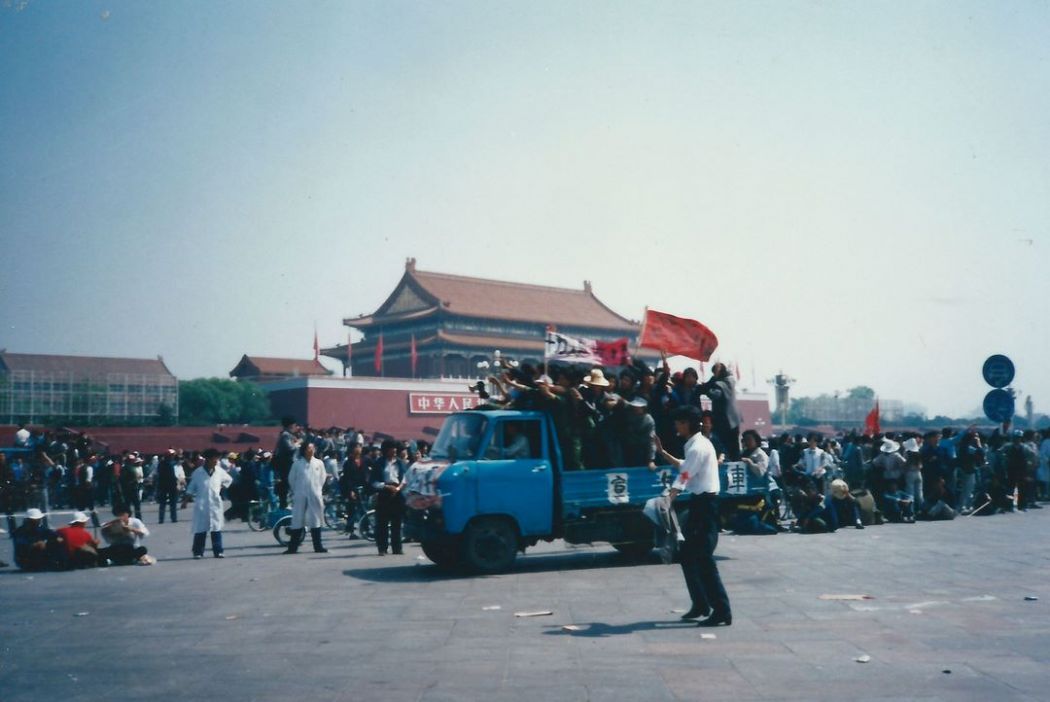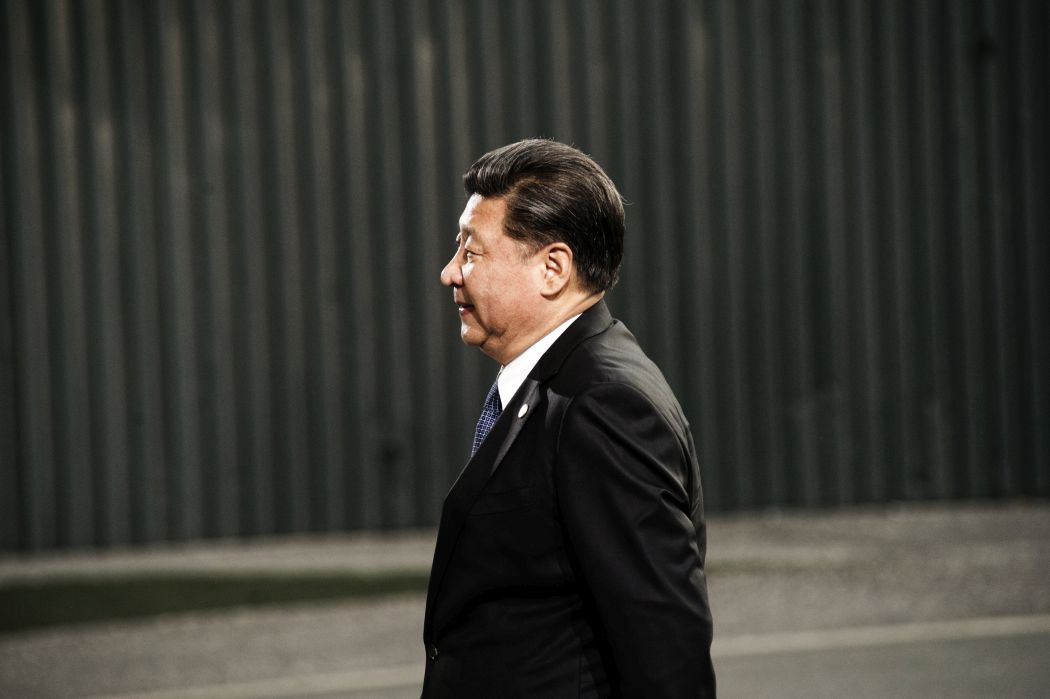It was two minutes past five in the afternoon on June 5 29 years ago when Margaret Thatcher picked up the ringing phone. George H. W. Bush, who had just returned to Washington from his celebrated European tour, was calling urgently about the latest news from Tiananmen Square.
The two leaders exchanged greetings and went through their respective official statements condemning the Chinese army’s violent crackdown, before turning to a common subject of grave concern: Hong Kong.
During the president’s London visit the week before, Thatcher had spent a lot of time explaining to him the implications for Hong Kong of then-ongoing tensions in Beijing. They both understood well that the colony’s stability depended on how the Chinese Communist leadership handled the protests, not least because the Sino-British Joint Declaration signed five years earlier had ordained Hong Kong’s impending handover to China in 1997. The drafting of the Basic Law — the territory’s future constitution — was well under way.
Thatcher and Bush were right to believe that Tiananmen would have no less impact on Hong Kong than on China itself. Hong Kongers were seeing everything unfold on live television through the spring of 1989 not only in present terms but even more so in future terms. The Chinese response to dissent in the mainland, they reasoned, would be a good indication of how the territory might be ruled after the transfer of sovereignty.

Support for the protests in Beijing was almost unanimous among Hong Kongers in the days leading up to the final crackdown. An all-star lineup of performers at the 12-hour outdoor marathon Concert for Democracy in China on 27 May helped raise substantial funds for the movement, and a whopping 1.5 million people turned out on 28 May for the massive solidarity march.
These unprecedented episodes strengthened Hong Kong’s civil society and even united, perhaps for the only time, local pro-democracy activists and pro-Beijing leftists who wished to see a more open China.
Unfortunately as the world would come to learn, bloodshed, not peaceful resolution, brought Tiananmen Square’s two-month resistance to an abrupt end on 4 June. What followed was both a Chinese domestic problem and an international crisis. Bush, acutely aware of the latter point, assured Thatcher repeatedly in their 5 June conversation that “if the U.S. came across information that affected British interests, especially on Hong Kong”, he would let the prime minister know right away. They agreed to “keep closely in touch”.

Since as late as September 1984 — at the conclusion of the Sino-British negotiations behind closed doors regarding Hong Kong’s future — the international community had come to view the colony within the framework of China. This became even more obvious in the years after the Tiananmen Massacre.
The Thatcher administration immediately began throwing around the idea, rejected eventually, of granting all Hong Kongers the right of abode in the U.K.; Canadian Prime Minister Brian Mulroney made a high-profile visit two years later to the colony, where he hosted the May 1991 Festival Canada and encouraged immigration; Bush signed into law the landmark United States-Hong Kong Policy Act in October 1992 to affirm the territory’s post-handover special status.
These were not coincidences. Recently declassified documents obtained by the Decoding Hong Kong’s History project from the National Archives reveal that London was deeply anxious to rebuild confidence in the colony after 1989. Its strategy? To “globalize” Hong Kong.
In conferences and summits, British diplomats lobbied their allies vigorously to voice support for the vulnerable colonial outpost. Other notable efforts included promoting the idea of “Hong Kong as an international centre” and urging friendly governments to grant elite Hong Kongers permanent residency.
“The presence of large numbers of foreign businesses and people,” Martin Gilbert Barrow of Jardine Matheson argued in an internal government memorandum, “would provide innate protection through international publicity and involvement.”

Although Hong Kongers were never given the right of self-determination — which is unjustifiable — Britain did make sure the territory would emerge as a more politically and culturally prominent place over the eight years after Tiananmen. In the end, it was a truly global Hong Kong that the world watched Britain hand over to China on 1 July 1997.
Part of why governments in the West believed it was in their best interest to safeguard Hong Kong’s freedom and autonomy, however limited, was its role as a gateway to understanding China. Yet these functions no longer define the territory the way they used to just two or three decades ago.
Its relative economic strength has gradually diminished since China entered the World Trade Organisation in December 2001. Meanwhile, Beijing’s systematic efforts to undermine its language, culture and identity have further isolated it from the international community.
Today, the Tiananmen Massacre is still widely, and correctly, remembered as a watershed moment in contemporary Chinese history. Yet the episode’s enormous impact on Hong Kong is all too often overlooked.
This is no coincidence either. President Xi Jinping understands, just as well as Thatcher and Bush did in 1989, that preserving Hong Kong’s way of life requires maintaining its unique status – he does not share this goal and that is precisely why China is actively trying to isolate Hong Kong and make it irrelevant.

Xi, the strongest Chinese leader since Mao Zedong, is ambitious. He dreams of building an empire so vast and efficient that it will be capable of fundamentally challenging the post-Cold War world order long championed by the West. Already he is developing China’s “sharp power” to undermine foreign democracies.
He is also clamping down on peripheries from Hong Kong and Macau to Tibet and Xinjiang, which, along with militarizing the South China Sea and pushing the One Belt, One Road initiative, are keystones of his imperial project.
Hong Kong remains, as of now, the freest territory under Chinese control; it is home to a vibrant civil society with roots that go back to 1989. The recent rise of right-wing localist sentiment, however, has convinced some Hong Kongers to stop commemorating the Tiananmen Massacre.
But while it is understandable that Hong Kongers do not have an inherent responsibility to fight for China’s democracy, it is dangerous to dismiss the lessons of 1989: international support is indispensable to our survival. Otherwise, while Goliath roars, David only whispers.
On the 29th anniversary of Tiananmen, the world should not forget about the brave souls who sacrificed for democracy in China. Neither should it forget about Hong Kong — a place that was also forever changed by that fateful year of 1989.
Joshua Wong is the Secretary-General of the Demosistō party. Jeffrey Ngo is Standing Committee member of the party and a visiting scholar at University of Toronto.
